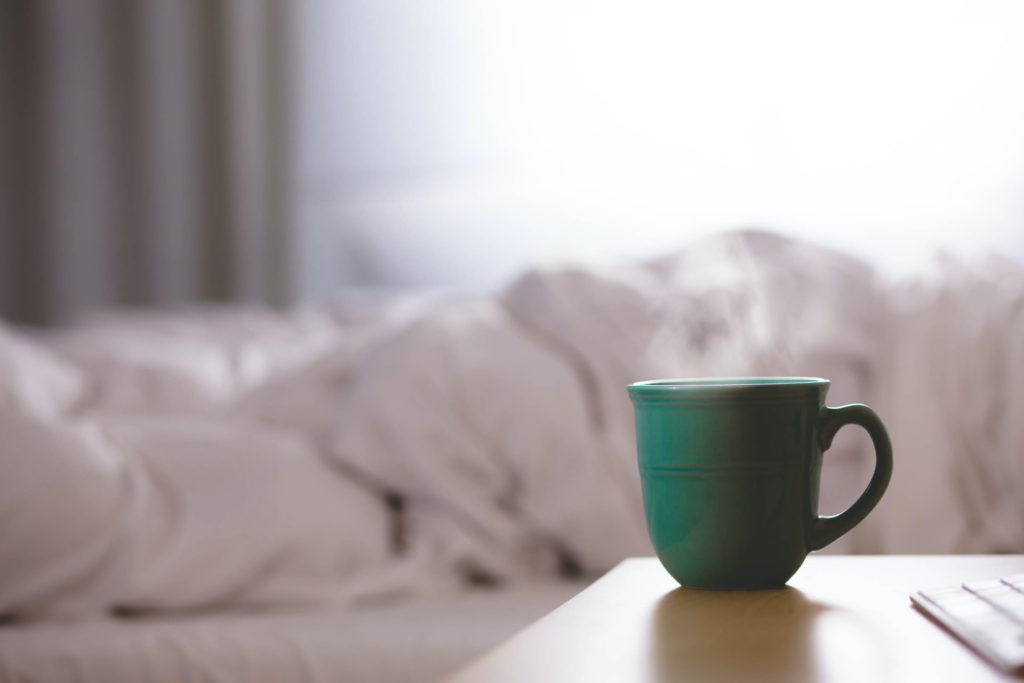You spend a huge portion of your life in bed. Sleep is an essential piece of your overall health. Your body needs time to relax and rejuvenate. Not getting enough sleep can cause excess stress, a higher potential for illness, and general grumpiness. But if sleep is so important, why do so many people have such a hard time falling asleep, staying asleep, or prioritizing their sleep schedules? It’s a universal feeling that people are eager to find ways to sleep better and finally get that peaceful rest they deserve.
Several things can cause sleep problems. Feeling overwhelmed, trying to sleep in a cluttered environment, or eating the wrong kind of food before bed can all trigger sleeplessness or insomnia. There are simple steps and tips you can follow to create better sleep habits for yourself. If you spend a huge part of your life sleeping, you may as well make sure you’re doing it in the best way. Here are just five simple tips to help you get better sleep.
1. Try a sleep aid.
Several individuals take supplements to help them get active ingredients necessary for their wellness. This can be an option to help with sleeplessness as well. Consider getting that extra dose of melatonin by trying pills or capsules from wellness companies that the drug administration approves. You can also go for a drug-free option like the sleep Nutri strip. This is an oral strip that acts as a supplement to help you sleep better. It’s okay to use a little extra help to fall asleep faster, get more restful sleep, and wake up refreshed. These high-quality products may be the answer.
2. Don’t stare at screens before bed.
The digital age has brought about many advancements and improvements throughout different areas and industries. However, scrolling through your favorites on your phone before you close your eyes for the night can have incredibly harmful side effects on your sleep cycle. The light from your phone and the stimulation of your mental focus can cause your mind to race and your brain to stay awake even when it is craving sleep. As a beginner with sleep training, try and put your phone away for at least 30 minutes before you want to go to bed so you can give your mind time to relax.
3. Stick to a strict schedule.
Just like any healthy habit, you have to be vigilant with your scheduling. Medical advice recommends adults get between six and eight hours of sleep a night, and more can actually be harmful to you. Set a strict time to go to sleep every night and stick to it for ease of use. Then be sure you wake up at the same time every morning. Don’t hit snooze or change on the weekends. Consistency will help train your body to know when it’s ready to sleep.
4. Create a calm, peacefully sleeping environment.
When you bring stress or work into your relaxation environment, it can confuse your brain. Make your bedroom a completely calm area where you can focus just on your sleep. Invest in your bedspread and pillows, try out some hanging plants indoors for calming effects, and make sure the low light is just how you like it. By making your sleeping space as relaxing as possible with baskets and the perfect plant, you’re helping train your brain for peaceful rest.
5. Watch your diet and drinking.
What you eat and drink affects your whole body, including how well you sleep at night. Avoid eating heavy foods right before you go to sleep because it can cause you discomfort. You’ll also want to regularly limit your alcohol or tobacco consumption so you aren’t interrupting your natural sleep cycle. It’s an excellent choice to stick with water and watch your diet to help with your sleep.

